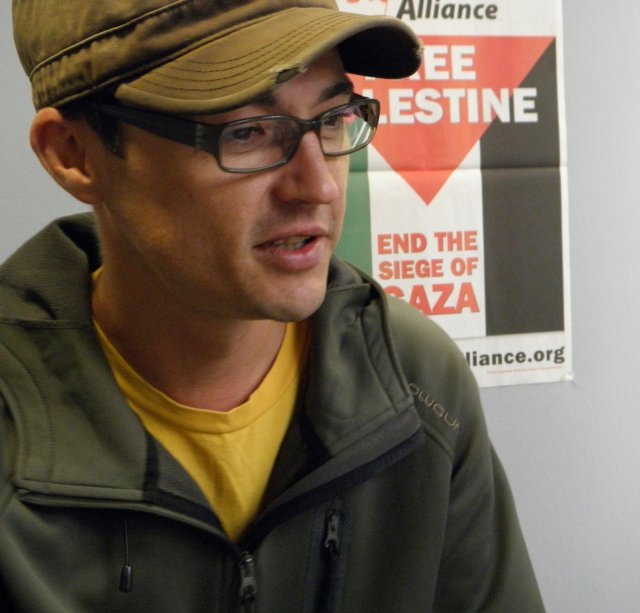
Michael Coleman is keen to rejoin a Gaza Freedom Flotilla at any time (although his parents would say something different). The youth worker from Sydney has just returned from taking part of the international protest against Israel’s illegal siege on Gaza.
Coleman narrowly avoided a jail term for trying to help a Canadian boat — the Tahrir — leave a port on the Greek island of Crete as part of the Freedom Flotilla 2. He is very proud to have been part of an international protest which has again put the spot light back on to Israel.
Coleman spent a few hairy hours in detention, which, he told Green Left Weekly, “was nothing compared to what the Gazans have to put up with on a daily basis”.
“I was trying to draw the world’s attention to the collective punishment of the 1.5 million Palestinians living in Gaza.
"Israel’s illegal blockade means that the people of Gaza are not allowed to travel, their basic needs are not met and despite what’s being said and written, the Rafah border crossing [with Egypt] does not have the infrastructure to alleviate the suffering of the population.”
Coleman described the enormous level of organisation that went into making Freedom Flotilla 2 happen and how it attracted a huge range of activists — the youngest aged 23 and the oldest 80 years old.
“The atmosphere was amazing, and I’ve much respect for everyone who went. There was even a protester who had survived the massacre on the Mavi Marmara — the Turkish ship which the Israelis fired on and killed nine activists during the Gaza flotilla last year.”
Asked about the Greek authorities’ response, Coleman said that it was clear that Zionism had come to Europe. Israeli Prime Minister Netanyahu made a big play of congratulating the Greek government — which is under tremendous pressure from its own citizens over its austerity drive — for not letting the flotilla sail.
But, Coleman said, the Greek port authorities’ hearts just weren’t in it.

“Many of the port officials simply wanted to have their pictures taken in front of the Palestinian flags,” Coleman said. “Others did a lot of unpaid overtime so that three of us didn’t have to go to the cells at night.”
Coleman was given a 30-day suspended sentence and ordered to pay $300 in court costs.
As for the unions, who were busy organising the huge anti-cuts protests, Coleman said that some were keen to help, and sent a lawyer who helped the activists out.
“After waiting around for weeks — the result of the Zionist pressure extending into Europe — we needed to do something,” Coleman said.
“The day before the [Greek] ministerial edict came down [July 1] that we were to be stopped from sailing, we marched with our pro-Gaza banners down the streets and right to the harbourmaster’s office.
“Taking the kayaks out was about making a symbolic protest against the Greek government’s blocking of our boat — the Tahrir — from sailing to Gaza.”
But not all the boats have been blocked: some are still waiting for an opportunity to try and break the Gaza blockade.
“This protest, which hasn’t yet managed to break the actual blockade, has managed to keep the debate over Palestinian rights going. So we’ve achieved something quite significant: Israel is having to respond to us. We’ve had good coverage and we still have a boat.”
The “Welcome to Palestine” initiative — whereby activists, including many from the Freedom Flotilla activists flew to Tel Aviv to visit Palestine (the “Flytilla”) — is “a very good continuation” of the protest, Coleman said.
“We thought it was going to be a ‘Ready, Steady, No tour’ — with three weeks blocked in port. But it turned out very differently.”
“I just hope we can shift public opinion in Australia and that [the government and media] stop being so apologetic towards Israel. My detention in Greece got more news in Greece than it did here — where criticism of Israel seems to be ‘off limits’ to a lot of the media.
“I spent two to three months in Nablus, in the Occupied West bank in 2008-2009. I received a lot of support [for the flotilla protest] from my friends in Nablus. They and the people of Gaza don’t want hand-outs: they just want their freedom.”